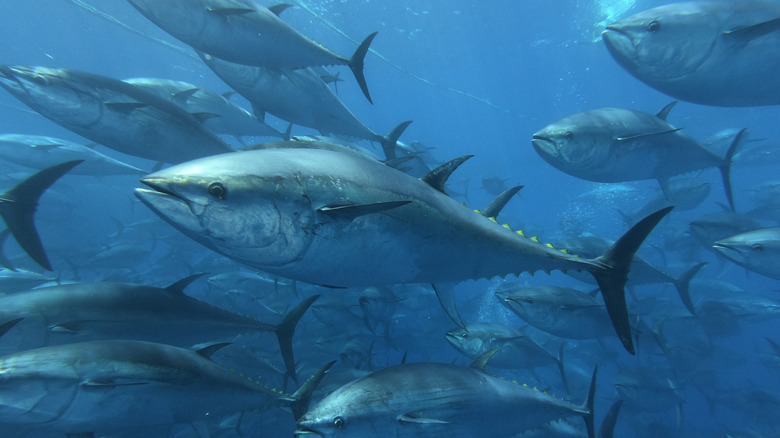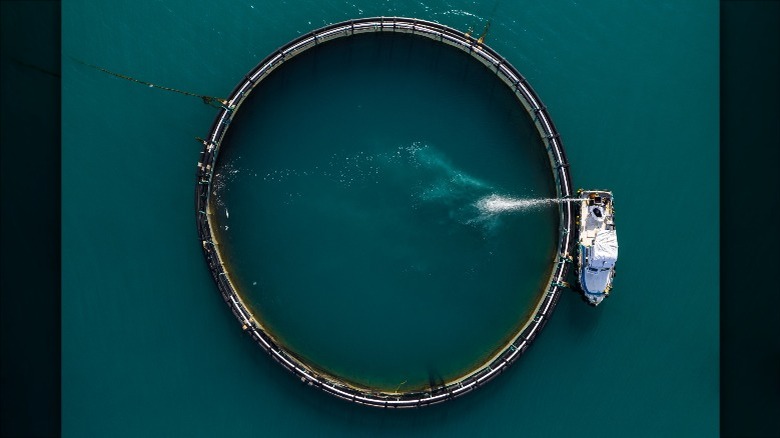The International Commission That Manages Tuna Protection Standards
For decades, tuna was so plentiful that it was simply assumed to be safely sustainable. In 2019, however, the University of British Columbia found that the 1000% increase in tuna fishing fueled by the adoption of industrial fishing practices meant fisheries had exceeded sustainable capacity. Angie Coulter, a researcher with the Sea Around Us initiative at UBC's Institute for the Oceans and Fisheries, expressed hope in a press release shared with ScienceDaily that businesses and policymakers would use this data to implement measures to ensure the sustainability of tuna.
Typically, as the Monterey Bay Aquarium explains, tuna regulations are controlled by regional fisheries management organizations (RFMO), which consist of an international membership in the organization's area. Every year they meet to decide how much each country can fish. However, there are a few issues. First, tuna is a migratory species, meaning that each RFMO sees the tuna it regulates pass on into another RFMO's jurisdiction. Moreover, RFMOs have not proven themselves adept at actually managing tuna fisheries, especially when it comes to the issue of by-catches that drag in more at-risk species like sharks. The problem with RFMOs is that even when the number of bluefin tuna had dropped by 95%, most were considering an increase to the catching quotas.
A tale of two RFMOs
The difficulty facing international organizations that desire to protect tuna can be found in the similarly named Inter-American Tropical Tuna Commission (IATTC) and the International Commission for the Conservation of Atlantic Tunas (ICCAT). The former conserves tuna populations in the Eastern Pacific while the latter deals with the Atlantic. But the BBC learned that in conservation circles, the ICCAT has earned the nickname the "International Commission to Catch All Tuna" because of its perceived failure to regulate tuna fishing. The IATTC, however, has been lauded for having a commitment to maintaining sustainable tuna catches (per Seafood Source). However, conservation groups have still pushed them to require better reporting as current measures to track illegal fishing are insufficient.
An added difficulty is that these are regionally based organizations, with countries in the region becoming members. So, the IATTC claims the United States as a member on its website, and it is listed as a member of the ICCAT by International Waters Governance. The strength of these organizations, as the BBC explains, is only in the governments willing to wield power and listen to the data collected by the scientists that belong to these organizations. In short, tuna regulation can only occur in good faith politics that is unlikely to prioritize the sustainability of the fish over the desire each country has to support its fishing industry.

